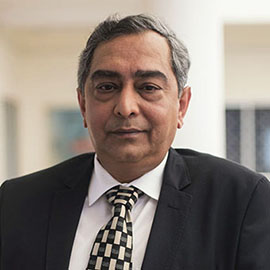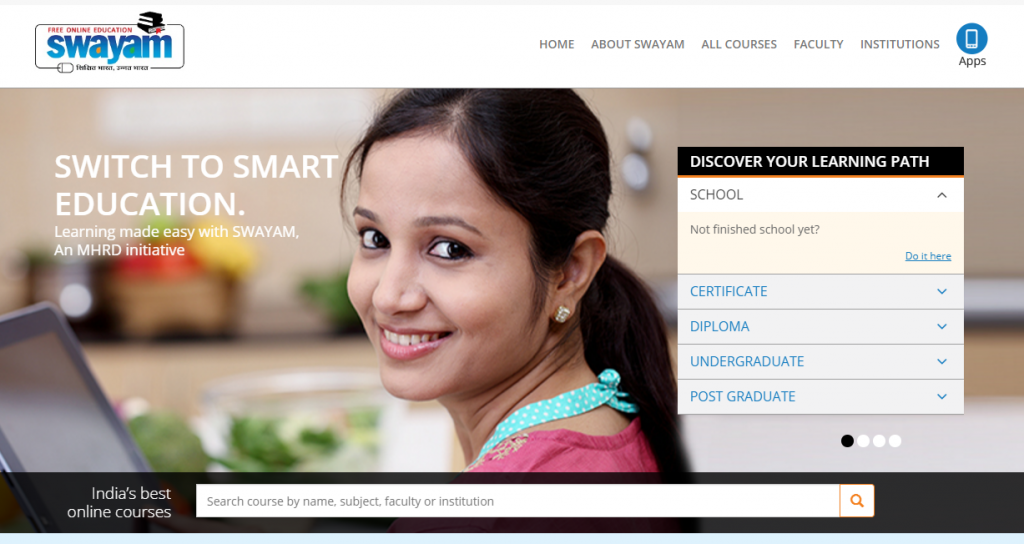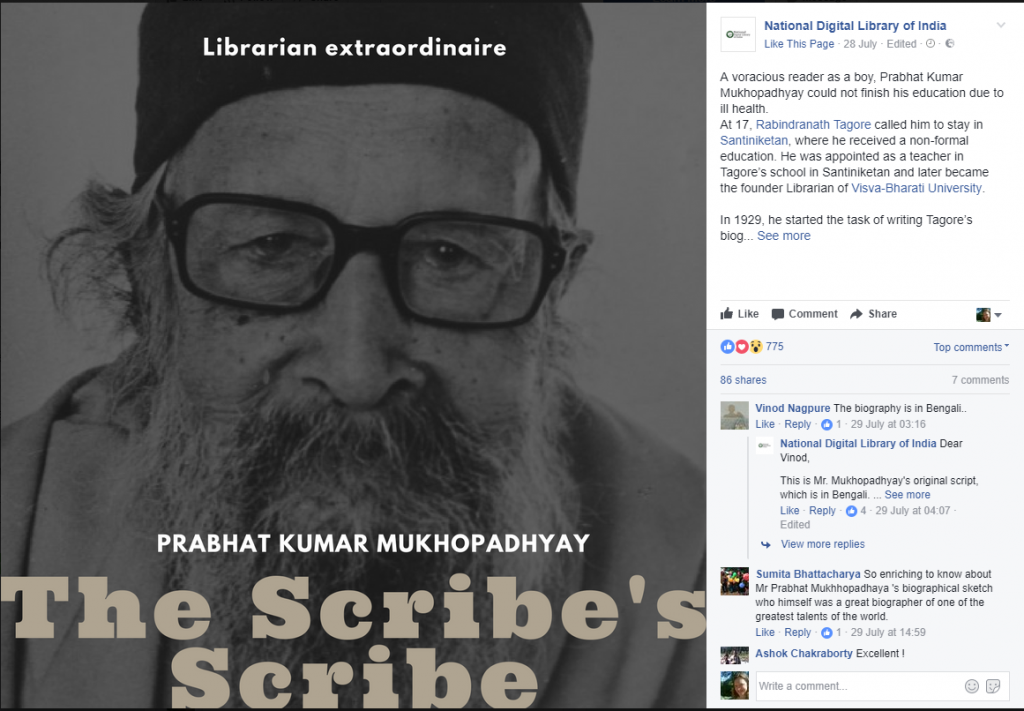‘Open culture is going to be the lifeline of human existence on the planet.’
Today’s interview is with Dr Partha Pratim Das is Professor, Department of Computer Science & Engineering, Head, Rajendra Mishra School of Engineering Entrepreneurship, Professor-in-Charge, IIT Kharagpur Research Park, Kolkata, and Joint Principal Investigator, National Digital Library Project, Indian Institute of Technology.
The National Digital Library of India launched in July 2017. It is a virtual teaching-learning-evaluation-knowledge discovery and innovation platform. It represents a movement to reach out to people in every corner of India with educational content. It provides a range of material from books, papers and theses to class lectures, audio books, tutorials, assignments, and educational games. The library is open source and designed to support collaborative learning. Find out more on Facebook, LinkedIn or Twitter and download the NDL mobile app.

Why is open culture important to you?
To be a true Indian.
Because I believe.
We are groomed in the spirit of our millenniums-old lessons of Upanishad (उपनिषद) and Gita (श्रीमद् भगवद्गीता). Hence we believe in वसुधैव कुटुम्बकम् – the whole world is our family. To quote:
अयं निजो परो वेति गणना लघुचेतसाम्।
उदारचरितानां तु वसुधैव कुटुम्बकम्॥
The small-minded count ‘this is mine and that is someone else’s’;
For the men of great character, the whole world is their family!
As विश्व कवि रवींद्रनाथ ठाकुर (World Poet, Rabindra Nath Tagore) once wrote:
Where the mind is without fear and the head is held high
Where knowledge is free
Where the world has not been broken up into fragments
By narrow domestic walls
Where words come out from the depth of truth
Where tireless striving stretches its arms towards perfection
Where the clear stream of reason has not lost its way
Into the dreary desert sand of dead habit
Where the mind is led forward by thee
Into ever-widening thought and action
Into that heaven of freedom, my Father, let my country awake.
We do believe – knowledge is free.
Addressing the first Parliament of World’s Religions in 1893 at Chicago, Swami Vivekananda addressed the august gathering as ‘Sisters and brothers of America!’. These words came spontaneously from the depths of a saint’s heart; but for us it has become a mantra – a mantra to welcome the world in open arms.
That’s India – my inspiration for every morning, each day.
Who benefits from open culture and how?
Anyone who has not broken up her/his world into fragments by narrow domestic walls.
India is a country of diversity – several languages, varied and rich culture, multitude of religious and political faiths, wide geographic and climatic conditions, deep economic disparity – yet we are united, we are together, we are one nation, we have many ‘Bharat’s; but one India. We understand, we care for all sections. This unity in diversity is the backbone of our open culture. Every citizen of India benefits from it as we all remain tolerant and understanding for everyone’s needs.
We share our openness with the world beyond the geographic and political boundaries of our nation.
Can you tell us about a successful project / achievement using open culture resources?
Digital initiatives of India in Education, in general; and National Digital Library of India, NPTEL Videos, and SWAYAM (Study Webs of Active Learning for Young Aspiring Minds) Programs (India’s MOOCs), in particular. Besides being freely available to the whole of India, these are now open to the world.

Screenshot of the SWAYAM home page
Why is it important for these resources to be available freely?
To democratize education for all.
India with its large population, diverse geography and socio-economic disparities, requires that resources like educational material to be affordable and accessible. Only with democratization of resources can the population achieve their intrinsic potential. In an open culture, resources are accessible to all which allows sharing and collaboration of existing as well as new ideas. The absence of regulatory and other restrictions is important so that beneficial ideas can be realized for real social benefits for all.
What is the future of open culture? If you were Elon Musk, what would you do with open culture?
Open culture is going to be the lifeline of human existence on the planet.
If I had all the powers, I would setup an Open World University and promote open culture as a means of survival.

From the Digital Library of India on Facebook. Prabhat Kumar Mukhopadhyay was the founder librarian of Visva-Bharati University
Open culture may have been a post-internet realization of the world, trying to promote open access, open source, open standards etc. by leveraging digital and online opportunities. In India, we have believed in open culture since time immemorial. Rabindranath Tagore set up Visva-Bharati University in 1921 for the communion of the world with India. Visva-Bharati is a rendezvous of people from all nations and all culture, a place to share and exchange all forms of intellectual wealth beyond any boundary. As the great artist Abanindranath Tagore, Rabindranath’s nephew, once observed:
Visva-Bharati represents India where she has her wealth of mind which is for all.
Visva-Bharati acknowledges India’s obligation to offer to others the hospitality of her best
culture and India’s right to accept from others their best.
Given all powers, I would build a Visva-Bharati in every corner of the globe and attempt to solve all conflict of humanity through open dialogue and mutual cooperation.
What cultural resources do you like to access online, personally?
World cinema, world dance, and world heritage.
It is impractical to attempt to list, but I like…
Gandhi Heritage Portal: https://www.gandhiheritageportal.org/
Dances for the Gods: http://www.dancingforthegods.org/ – an interactive multimedia website dedicated to Bharatanatyam, one of India’s oldest and best-loved classical dance forms.
Society for Natural Language Technology Research: http://www.nltr.org/





